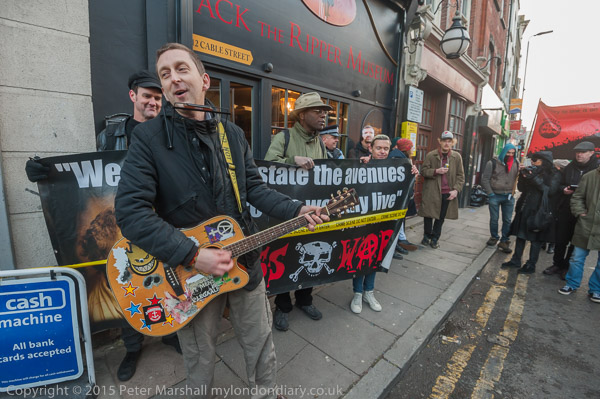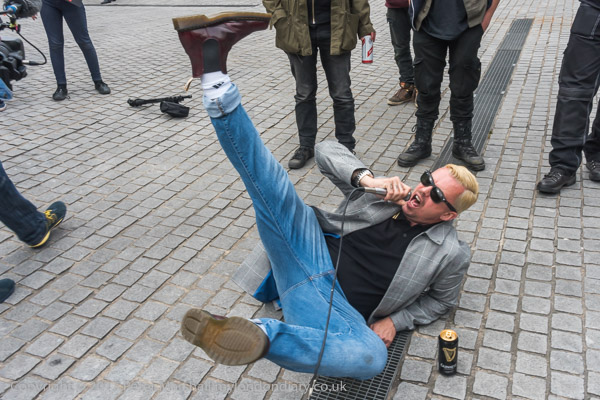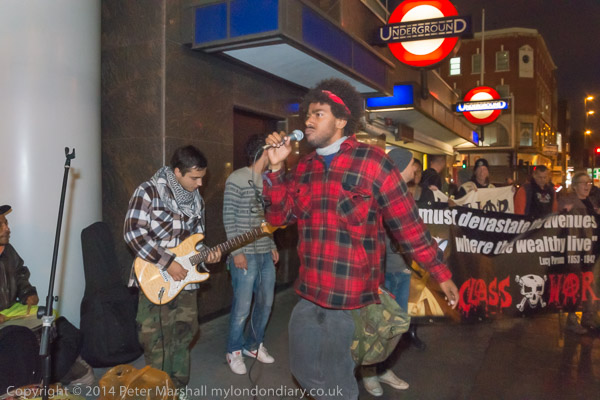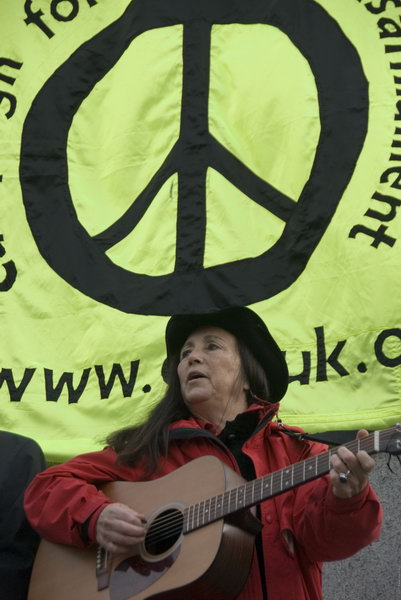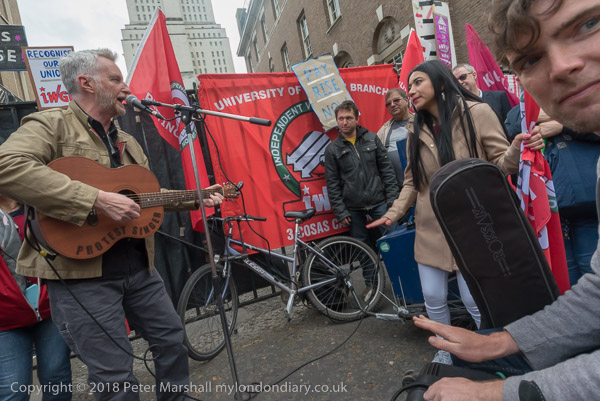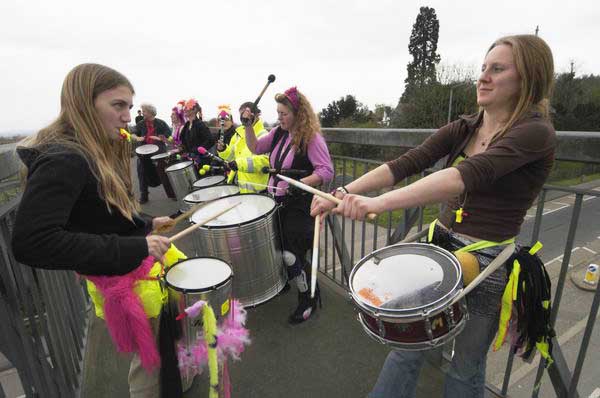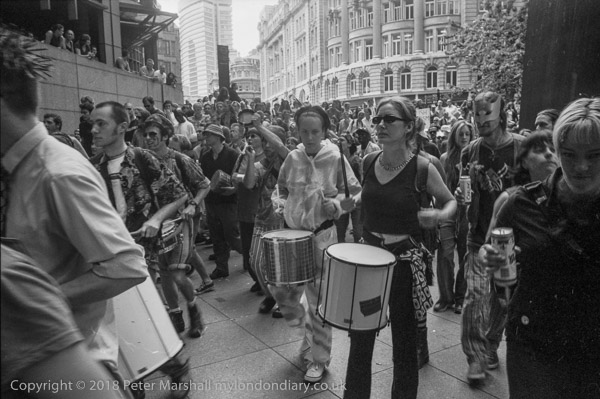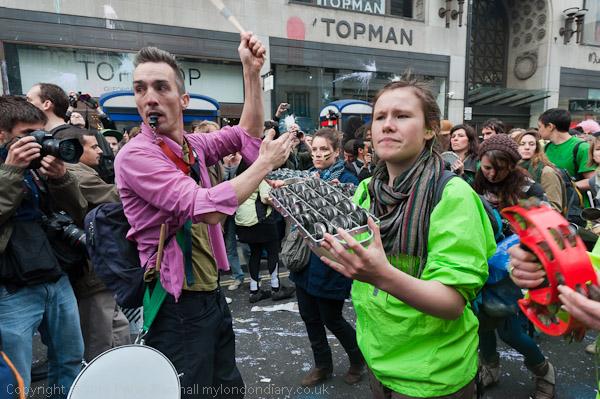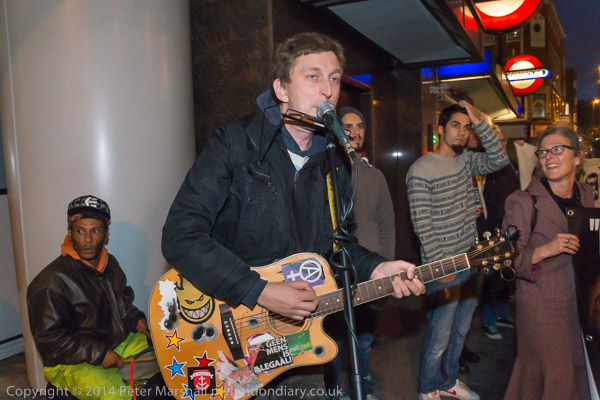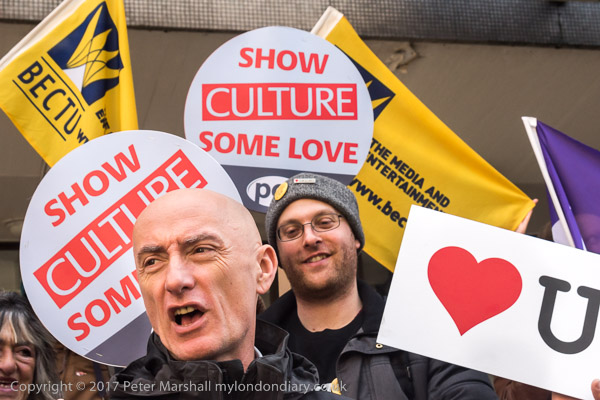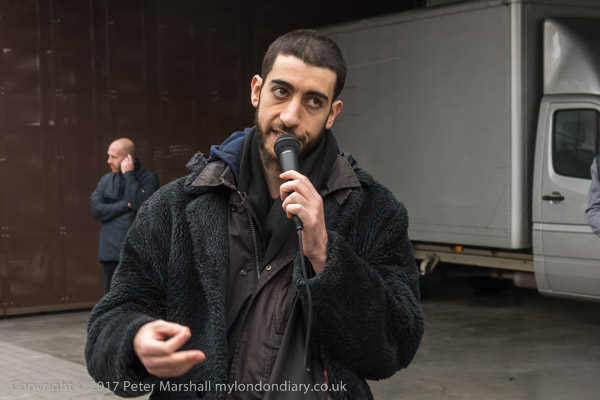J11 Carnival against Capitalism: Ten years ago on 11th June 2013 we saw one of the worst examples to date of police opposing the right to protest in London. The day had been billed by protesters as a Carnival Against Capitalism and was intended in the week before the G8 talks to point out that “London is the heart of capitalism, and to expose the offices of companies they think are brutal and polluting or exploitative, financiers who are holding the world to ransom, the embassies of tyrants and the playgrounds of the mega-rich.“
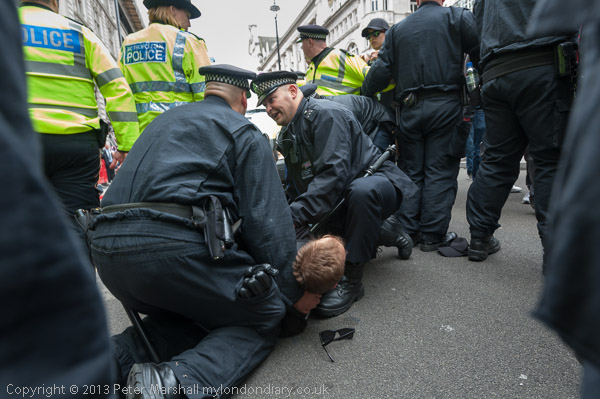
The organisers had said it would be “an open, inclusive, and lively event” and it would certainly have been noisy and high-spirited, theatrical in some ways but unlikely to cause a great deal of damage.
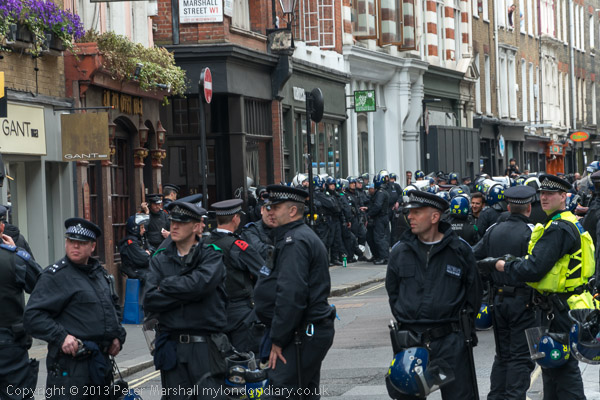
The police, almost certainly under political pressure had decided to treat it as a major insurgency, leaking invented scare stories to the media and getting a Section 60 order for the whole of the cities of London and Westminster which gave them the power to stop or search anyone on the streets without the need to show any suspicion. These orders are only meant to be put in place for a clearly defined area over a specific time when a senior officer believes there is a possibility of serious violence, or weapons being carried, and this seemed to be a considerable and probably illegal overkill.
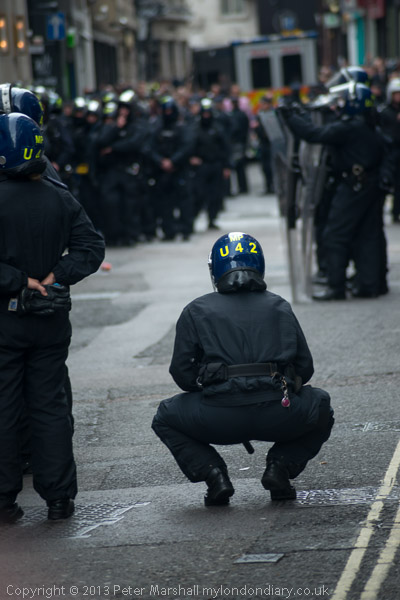
This was not a huge protest, probably expected to involve less than a thousand protesters. Quite a few had gathered the previous day at a large squatted former police station in Beak St. Police invented a story that those inside had paint bombs and intended to cause criminal damage and used this to get a search warrant, entering the building early on the day of the protest.
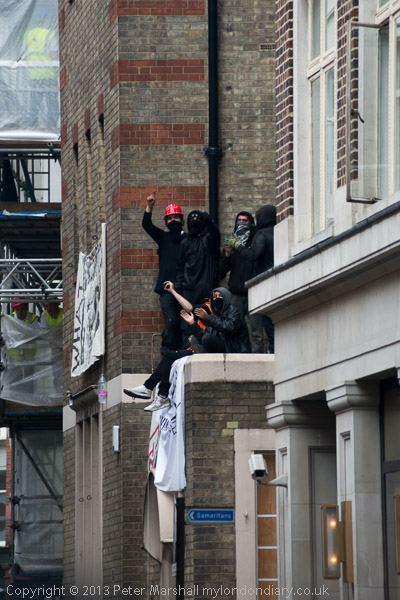
Police turned up intending to arrest all those inside, and came with a couple of double decker buses to take them away.They sealed off a long stretch of the street and held the people inside, preventing them from joining the start of the protest, but the search found nothing.
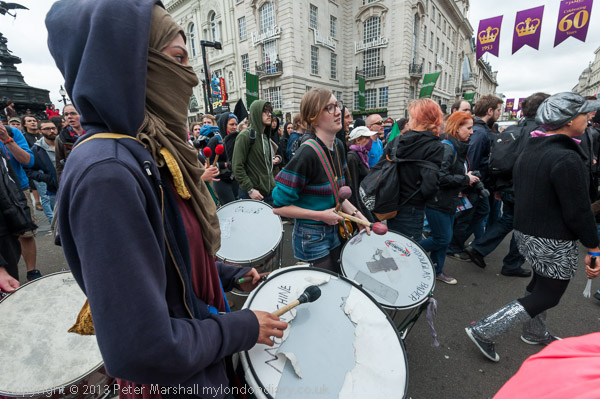
Along with the rest of the press covering the story I was kept out, and could only see a little of what was happening from a distance, photographing with a very long lens. The police were blocking an number of side streets too and I had to make a lengthy detour to get to the other end of the block where the view was little if any better.
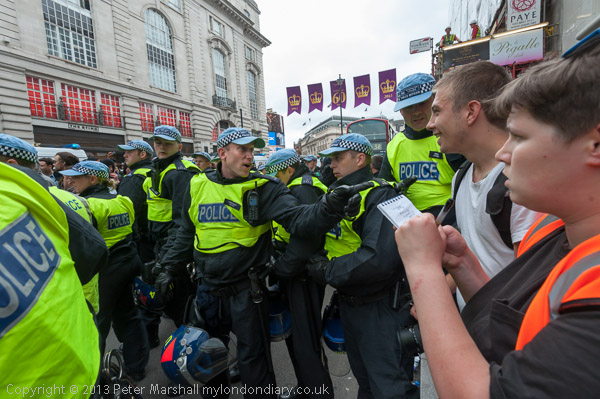
Police were stopping people on the streets and searching them, particularly anyone dressed in black or otherwise looking as if they might be a protester. Most were searched and released but there were a number hand-cuffed and led away. The only arrest where could find the reason was when a woman was arrested and put in a police van on Regent St for having a small marker pen in her handbag.
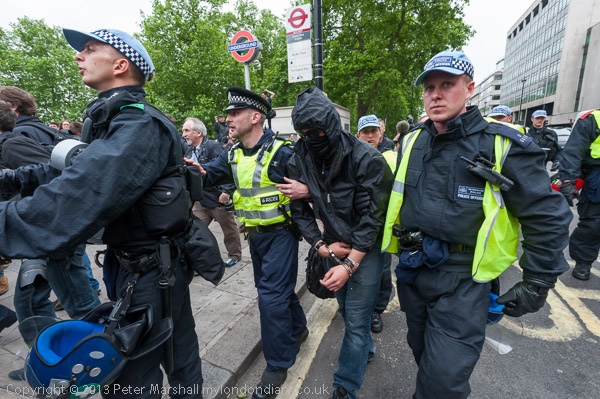
The protest from Piccadilly Circus began much later than intended. Around a couple of hundred people had eventually made it there, including a samba band, and left for their intended tour of the offices of some of the most powerful and greedy companies, “oil and mining giants, arms dealers, vulture funds, companies that launder blood money, invest in war and speculate on food supplies, and the offices, embassies of tyrants.”
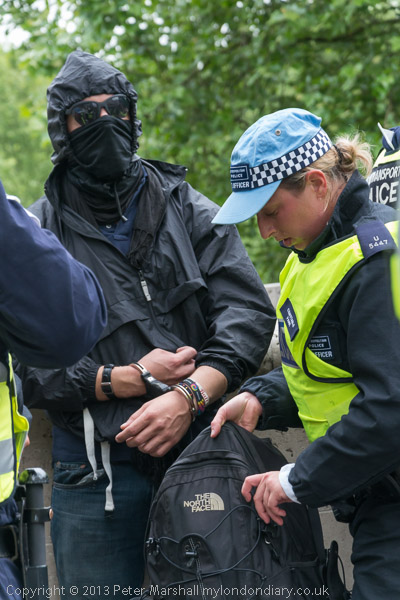
Police kept stopping the protesters and when they did there were some short speeches and the samba band played. Police occasionally rushed in and grabbed a protester, and there were some scuffles as people tried to protect their friends. Police vans blocked some of the major roads in the area, turning what would have been relatively minor traffic stoppages into long major disruptions.
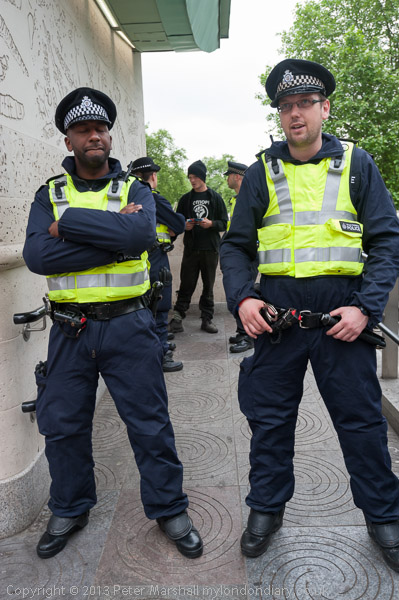
The tour stopped outside the Lower Regent Street offices of arms manufacturer Lockheed Martin for speeches against its activities – including making Trident missiles, after which the samba band began to play. One of the police ‘Liaison Officers’ came and told the band that they needed a licence from Westminster Council to play music in the street and would be committing an offence if they continued to play. He was greeted by shouts of derision from the crowd, but the band were clearly worried and held a consultation before deciding to continue on to protest outside BP around the corner in St James’s Square.
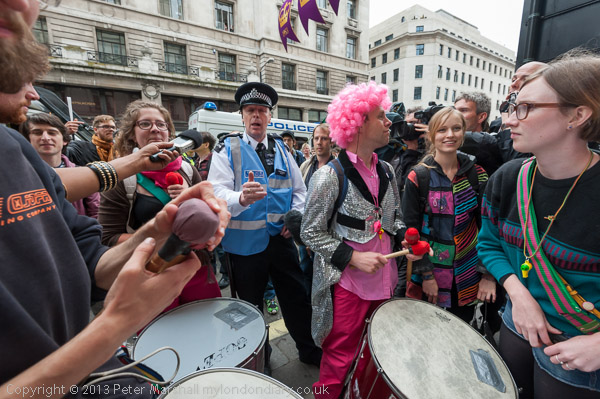
Westminster licences buskers not music on the streets. Many processions and protests take place with marching bands – including military events, the Salvation Army, Orange Lodges and many other protests. This warning was clearly another attempt by the police to harass the protest by applying laws inappropriately.
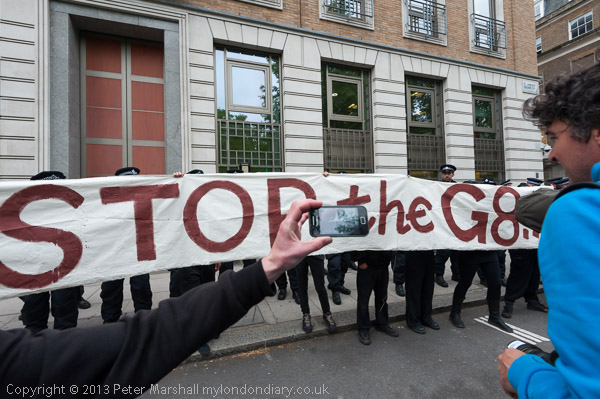
The protest moved on to the offices of BP in St James’s Square, where after a few minutes I left them, I’d been on my feet too long. The protesters still had a number of calls to make and doubtless the police would keep up their harassment.
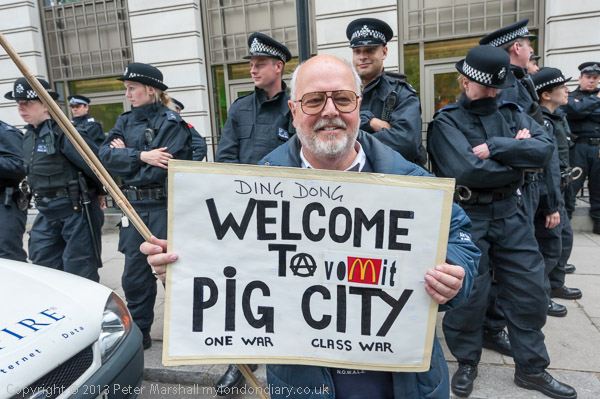
The Stop G8 protesters had despite the police carried out at least in part their intention to “party in the streets, point out the hiding places of power, and take back the heart of our city for a day.” The police had wasted huge amounts of public money, provoked some minor disorder, disrupted traffic for much of the day in a large area of London and shown themselves happy to lie and act outside the law to support the interests of the rich and powerful.
Read more and see more pictures at J11 Carnival against Capitalism.
